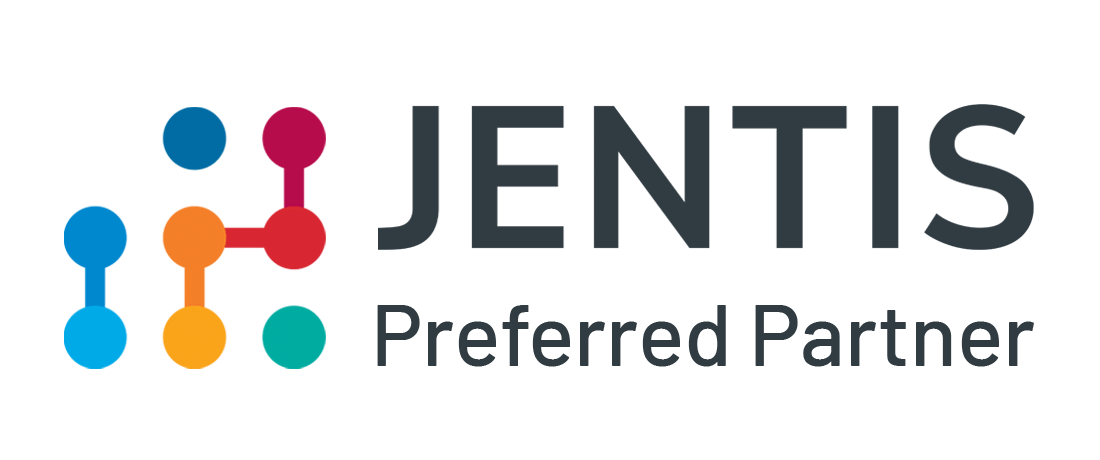Does your company have multiple websites? Find out how this so-called decentralized setup affects your search engine optimization (SEO) in our blog post.
The reasons for such a decentralized setup can be manifold: Websites for different offers, departments, and products are just a few examples.
After reading the blog post, you should be able to decide whether such a setup is also recommendable for you or not.
Search engine results page (SERP)
It can be a strategy to rank with different websites for the same search results and push the competition out of the search engine result pages’ best positions.
However, for it to be worthwhile to create different websites for a single company, each website’s content should be unique enough. It follows that if the websites vary enough to warrant multiple websites, there is little overlap between them. This difference, in turn, reduces the possibility that several websites are displayed for the same search terms.
Conclusion: Since the websites should contain different content, no SEO advantage for the company can be expected from a decentralized setup.
Domain Authority
For clarity’s sake, some definitions are in order to explain domain authority better.
– A root domain is, for example, advance-metrics.com.
– A subdomain would be seo.advance-metrics.com
– A subfolder is a subdirectory within a domain or subdomain, for example, amazeemetrics.ch/blog/
Search engines treat root domains as individual websites. Therefore, the domain authority must be built and optimized for each domain. Domain authority is mainly gained through link building.
Google treats sub Domains, on the other hand, as part of the root domain (e.g., seo.advance-metrics.com to advance-metrics.com). Tests show, though, that an independent authority must also be built up for the individual sub-domains. This can be costly and time-consuming.
Conclusion: Concerning authority, we recommend a single website and the use of subfolders instead of separate root or subdomains. This way, the individual pages benefit from the authority of the entire primary site (root domain).
In other words, the website passes on its authority to the subfolders. This authority can be supported by internal linking and good site architecture. Additionally, the centralized setup saves time and resources that can be used elsewhere for SEO optimization.
Content and keyword strategy
Using multiple websites requires more content to ensure that the websites provide a satisfying experience for the user. This, in turn, requires a more comprehensive keyword strategy.
Conclusion: SEO requires much effort, even for a single website. Therefore, we recommend a single website when it comes to content and keyword strategy. This also minimizes efforts and enables the use of synergy effects.
Duplicate content
Duplicate content is when identical or very similar content is present on several websites or pages. It should be avoided as much as possible. If not, the search engines (Google, Bing, etc.) do not know which content should be displayed for a search query and do not know which version of the content they should attribute link metrics, such as authority.
Duplicate content is not to be expected though in a decentralized setup, since each website should contain different content, offers, and information.
Conclusion: The setup (centralized or decentralized) does not play a role concerning duplicate content. We generally recommend that the content be as specific as possible and as detailed as necessary.
Google My Business
Google My Business (GMB) plays an important role, especially in local SEO. GMB is a free tool that allows you to manage your business presentation in Google Search and Google Maps.
With GMB, you can specify your company’s name, location, and opening hours, among other things. You can also answer customer reviews and find information about where and how users search for you, and much more.

Conclusion: We recommend every company to create a GMB entry. The setup of the websites (centralized or decentralized) does not matter in this respect. Just keep in mind that a GMB entry can only promote one website at a time.
Technical website optimization
The technical optimizations, such as URL structure or image names and ALT tags, are more involved in a decentralized setup, as several websites have to be optimized according to SEO best practice guidelines. Factors such as load speed optimization or structured data can often be implemented across the board for the entire website.
Conclusion: We recommend centralizing the websites as much as possible to reduce effort.
Monitoring & Reporting
A decentralized setup involves a more significant effort and possibly higher (tool) costs.
For example, different Search Console properties have to be set up, and various campaigns have to be created in the SEO tool of your choice. Additionally, reports usually have to be drawn up for each website.
An advantage of a decentralized setup is that more specific reports can be generated on demand (e.g., by domain). If such reports are desired, they can usually be created in a centralized setup using filter options.
Conclusion: We recommend a centralized setup to reduce the effort for monitoring and reporting.
Hosting Costs
A decentralized setup can lead to increased costs. One reason is that each additional domain name costs money.
Another reason is the fact a website needs storage place and bandwidth to function properly and deliver the best possible user experience. Create multiple websites and see the costs for both, storage and bandwidth, increase.
Moreover, if you have more than one website, you can choose multiple-domain-hosting. This hosting solution is usually more expensive compared to a single-domain-hosting. If, however, you would like to use a single-domain-hosting, you’ll need to create a separate account for each website you own.
And finally, you’ll have to buy premium features or plugins for each separate website.
Taking into consideration the above points, we recommend a centralized setup. It will save you efforts and costs.
Hosting Maintenance
If your company uses multiple websites, chances are high, that the different websites also use different content management systems (CMS), e.g. Drupal, Typo3, WordPress. It is also likely that different hosting environments are implemented, such as Windows IIS, Apache, Plesk, or amazee.io.
With each additional CMS and hosting environments, the costs will rise. Therefore, we recommend a centralized setup also when it comes to hosting maintenance.
Security
In today’s day and age, security and cyber-security with it, can no longer be ignored. With a decentralized setup, it becomes harder and more expensive to implement and maintain a comprehensive cyber-security strategy.
We recommend a comprehensive cyber-security concept. It follows then, that we recommend a centralized website setup as well.
Overall Conclusion
In terms of search engine optimization, the decentralized setup is clearly at a disadvantage and is therefore generally not advisable.
The most important arguments for using one single website are the setup of the domain authority and the effort for technical optimizations and monitoring and reporting. In addition, hosting and maintenance costs can be reduced and security improved.
With centralization, it is essential to ensure that correct permanent redirection from the old to the corresponding new URLs is implemented; otherwise, the changeover will harm SEO performance. Centralization should, therefore, be thoroughly planned and carefully executed. If you need help with this, we will be happy to assist you.









